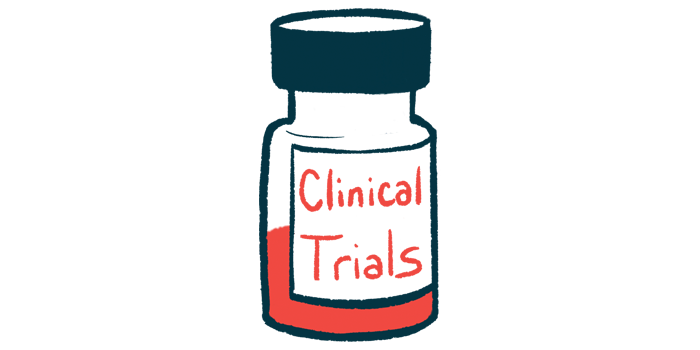Dosing begins in trial of potential therapy for GBA1 Parkinson’s
Phase 1 clinical study is testing Gain Therapeutics' oral candidate GT-02287
Written by |

Dosing has begun in a Phase 1 clinical trial that is testing GT-02287, an experimental oral medication being developed to treat Parkinson’s disease caused by mutations in the GBA1 gene.
The first two participants in the trial have been dosed, according to the therapy’s developer, Gain Therapeutics.
“Initiating first-in-human dosing with GT-02287 is an important milestone for Gain as we enter a new era as a clinical-stage company,” Matthias Alder, Gain’s CEO, said in a press release.
“I am very proud of the work accomplished by the entire Gain team to get us to this stage today, and we are eager to advance our understanding of the safety, tolerability and effect of GT-02287 in humans,” Alder said. He added that the milestone “represents another major step forward toward providing a treatment for Parkinson’s patients and their families impacted by this devastating disease.”
In most cases of Parkinson’s disease, the cause is unknown, but some cases are associated with genetic mutations. Mutations in the GBA1 gene are one of the most common causes of genetic Parkinson’s, found in up to 15% of all Parkinson’s patients, according to Gain.
The GBA1 gene provides instructions for making a protein called glucocerebrosidase (GCase), which is needed for the function of lysosomes.
Lysosomes are structures that act as cellular recycling plants, breaking down molecular waste into simple components that can be reused by the cell. Mutations in GBA1 prevent lysosomes from properly breaking down waste, so molecular debris builds up to toxic levels in cells.
Lysosome dysfunction also is thought to play a role in forms of Parkinson’s not related to GBA1, as it’s thought that problems with lysosomes may contribute to the toxic buildup of alpha-synuclein protein that characterizes the disease. Problems with lysosome function also have been implicated in the development of several other neurological disorders.
GT-02287 fared well in preclinical investigations
GT-02287 is designed to bind to the faulty GCase enzyme, helping to restore lysosome function in people with GBA1 mutations. In preclinical models, the therapy has been shown to improve motor function and reduce markers of nerve damage.
“If GT-02287 proves successful in disrupting the disease process in GBA1 Parkinson’s, its fundamental mechanism of action could play a crucial role in addressing various neurodegenerative diseases, including Gaucher, idiopathic Parkinson’s, dementia with Lewy bodies, and Alzheimer’s disease,” said Robin Ely, MD, founder of the National Gaucher Foundation.
Authorities in Australia cleared Gain to start a Phase 1 trial of GT-02287 earlier this year. The trial will test single and multiple doses of the therapy in healthy volunteers, with the goals of assessing its safety profile and pharmacological profile to inform future studies in people with Parkinson’s.
“Today marks an important step for Gain in the journey to bring a novel, potentially disease-modifying therapy to patients for whom only symptom-focused therapeutics exist,” Ely said.






